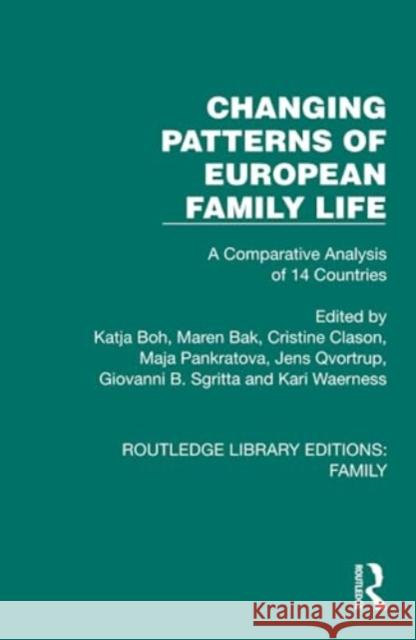Changing Patterns of European Family Life: A Comparative Analysis of 14 Countries » książka
Changing Patterns of European Family Life: A Comparative Analysis of 14 Countries
ISBN-13: 9781032536309 / Angielski
Changing Patterns of European Family Life: A Comparative Analysis of 14 Countries
ISBN-13: 9781032536309 / Angielski
(netto: 559,74 VAT: 5%)
Najniższa cena z 30 dni: 528,93
ok. 22 dni roboczych.
Darmowa dostawa!
Originally published in 1989, this cross-national study investigates the role and pattern of family life in fourteen countries in contemporary Europe. Providing a wealth of information on European families, it is a key source for anyone wishing to understand the changes in the family at that time.
Originally published in 1989, this cross-national study investigates the role and pattern of family life in fourteen countries in contemporary Europe. Providing a wealth of information on European families, it is a key source for anyone wishing to understand the changes in the family at that time.
The contributors argue that, far from withering away, the family remained a very important social unit which continued to have considerable influence on other social institutions such as the state and the labour market. The central theme is the interrelation between changes in production and working life on one hand, and changes in family life and reproduction on the other. The contributors focus on the pressures and contradictions produced by the division of functions between family and work, and on problems which have arisen as a consequence of the sometimes incompatible and even conflicting demands of the two institutions. They show that the evolution of the nuclear family model in Europe had led to a great diversity of family patterns, and conclude that the family in modern European societies still had a contribution to make which no other institution could provide.











